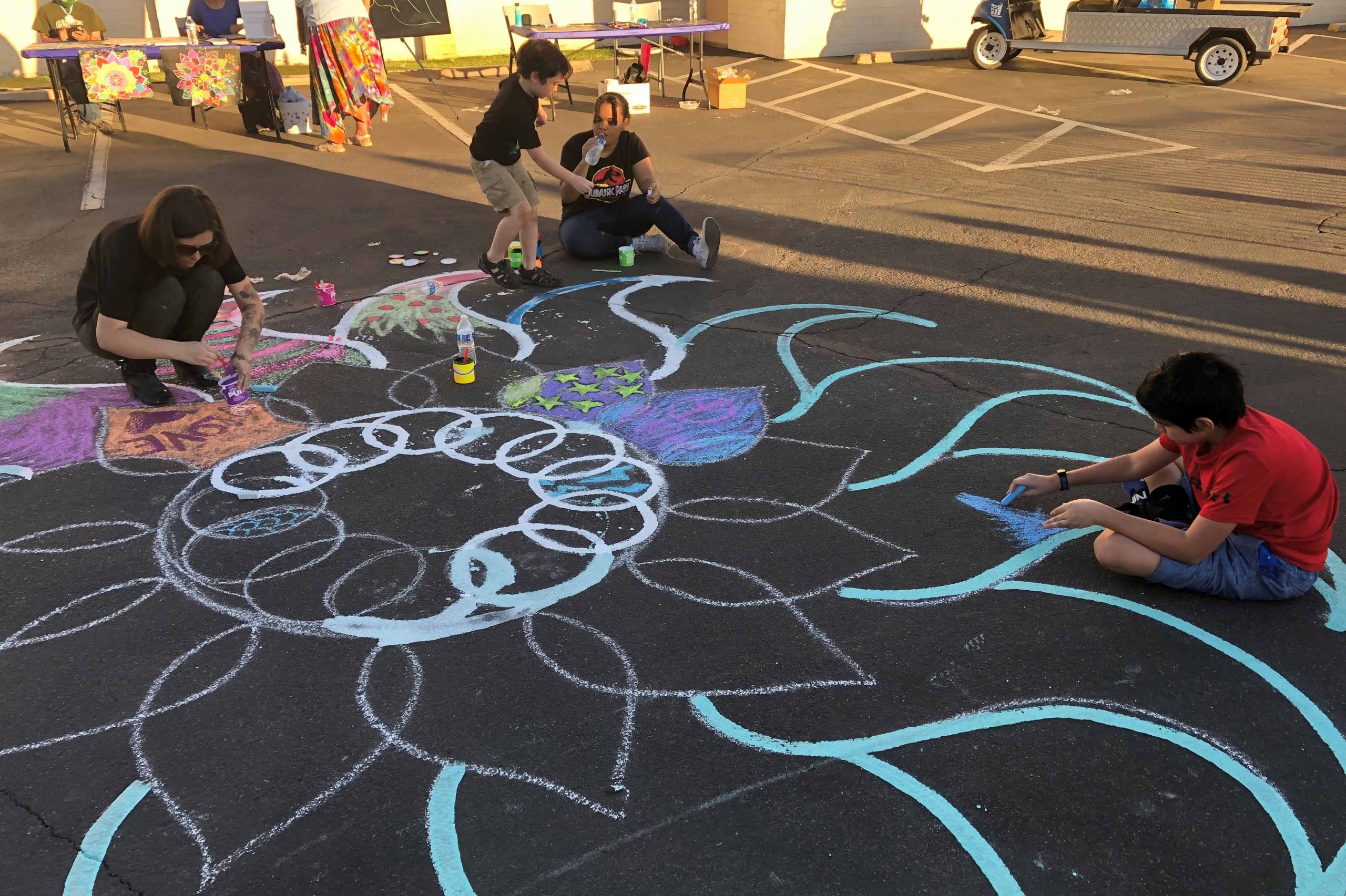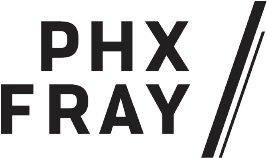An Exercise of Thought, Artistry + Community Building at The Mesa Prototyping Festival

The third edition of the Mesa Prototyping Festival took place this past weekend, immersing participants and guests from the local community in tactile thought-exercises surrounding community, space-making and reimaginations.
“My central passion is engaging communities in their own creative potential,” says Cindy Ornstein, executive director of Mesa Arts Center — the institutional host of the festival — and director of the Mesa Department of Arts and Culture. She sees the Mesa Prototyping Festival as just that — a practice in creative community building.
The festival builds on the experimental design concept of prototyping, which is, in essence, the process of creating and testing experimental models. The Mesa Prototyping Festival, therefore, intends to empower the Mesa community to fashion artistically engineered solutions to localized issues.
The Mesa Arts Center hosted their first prototyping festival back in November 2017. Ornstein got the initial inspiration to host their own festival from the Market Street Prototyping Festival, which took place in the spring of 2015 in San Francisco — a collaboration between the Yerba Buena Center for the Arts and the San Francisco Planning Commision. Orstein says, however, that their work at Mesa Arts Center was building, indirectly and directly, in the direction of prototyping for a long time.
“We have a program called Creative Catalysts, for instance, which is based in the idea of engaging grassroots community members in thinking about the creative community they want to live in, and then having ownership and agency to help make it what they envision,” Ornstein explains. “That was already a project in existence.”
Their first festival was hosted in downtown Mesa, which provided them a broad reach into the community. The reception to the first festival was overwhelmingly positive, so Ornstein and her team were inspired to continue the work — but decided to refine and focus their approach.
The 2019 festival focused on two lower-income, predominantly Latinx neighborhoods south of downtown. According to Ornstein, the residents were “really excited about the idea of experimentation, and about something that is made highly accessible.”
“It’s really about the widespread and active engagement of the community in the arts, and having them feel a vested interest in sustaining arts engagement as a part of what their community believes in,” Ornstein says.
Their approach in 2019 included artist residencies, collaboratively immersed within the two neighborhoods, and further development of second-generation prototypes. The 2021 festival, which was actually meant to launch in March 2020, was built on these foundational relationships, shared goals and intentions and community-based kinetic energies.
“The idea was to not make this some isolated event once-and-done, but rather to point out that it was integrated into a series of other [initiatives],” Ornstein says.
“It was these neighborhoods that we started working with, and are still working with four years later to try to build not only relationships, but to build interest among the folks in those communities — interest in awareness of the resources in downtown, especially the cultural resources available to them, to try to encourage greater participation.”
This year’s festival included seven community prototypes, as well as hands-on art and community-building activities, food vendors, and live music. Families, neighbors and community members alike enjoyed an afternoon of creative communal engagement and right-brain-activity.
“This event solidified our belief in the importance of community responsive activities integrated into neighborhoods to make them accessible and to connect neighbors and neighborhoods,” Ornstein says. “It also reinforced the importance of community partnerships and relationships, and the desire to continue to grow those long-term and meaningful partnerships throughout our very large city.”
“The notion of using an accessible, temporary experimental form, to empower people to think about what they wanted their neighborhoods and their city to be, was very appealing,” Ornstein says. “The idea of making something that was based in the community was very appealing, because we believe everyone has the power to be highly creative, and everyone benefits from creative thinking and creative problem solving.”
The Mesa Arts Center is hopeful that these creative, community-focused initiatives can continue to evolve within the prototyping festival itself, as well as through other arts initiatives. Whatever the vehicle, the Mesa community can only stand to benefit from the frameworks, resources and events that the Mesa Arts Center provides — and the prototyping festival is case in point.
Mesa Arts Center: 1 E Main St. Mesa, AZ; mesaartscenter.com // @mesaartscenter

